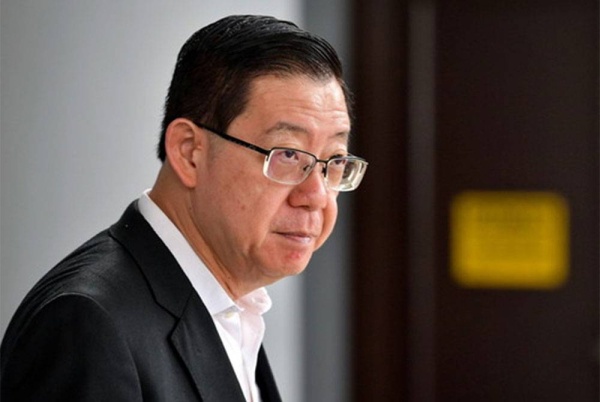
Opinion: Lim Guan Eng's one law for "us" and one law for "others"
11 Aug 2025 • 1:00 PM MYT

TheRealNehruism
Writer. Seeker. Teacher

Image credit: Sinar Daily
In a recent statement, former Finance Minister Lim Guan Eng argued that Malaysia has no obligation to provide migrant workers with a minimum wage or EPF contributions, because the United Nations or the International Labour Organization (ILO) doesn’t require it.
In other words, Lim is telling us that since no one is forcing us to treat these foreign workers fairly, we shouldn’t bother. Because they are “others,” not “us,” they should be grateful for whatever we give them – even if it’s far less than what we give ourselves. After all, what we give them here is better than what they would have gotten in their own countries.
This logic is not only cold-hearted, but deeply disappointing coming from a man who has built his political image and party on the slogan of "Malaysian Malaysia", a principle that all Malaysians—regardless of race or background—deserve equal treatment and respect. Yet when it comes to foreign workers, who are among the most vulnerable in our society, Lim seems more interested in protecting employers than standing up for fairness.
One cannot help but wonder: what would Lim say if someone applied the same logic to his own community? If someone were to say, “We don’t need to treat the Chinese or the Indians fairly because the Constitution doesn’t require it,” would Lim sit quietly and nod in agreement? Or would he, as he has done countless times, cry foul over injustice, discrimination, and institutional bias?
Is principles only applicable to Lim Guan Eng only when they serve his or his community’s self-interest? When it comes to the rights of others—especially those who cannot vote or don’t contribute to his political base—does principles suddenly negotiable, disposable, or outright irrelevant?
His stance reveals a deeper rot in our political culture. It shows us why Reformasi or the demand for a principled and just society—the dream of a fair and just Malaysia—remains so elusive. Because the people who shout about reform the loudest are often the ones least committed to principle when it matters most. They are willing to sacrifice fairness when fairness demands that they or their people take a back seat, even momentarily.
This is not about Lim alone. It’s about a broader political mindset in Malaysia: one where ideals are only upheld when convenient. The moment upholding a principle threatens political support, economic interest, or ethnic allegiance, those same principles are thrown under the bus.
This kind of hypocrisy kills honest discourse. You can’t reason with someone who only sees justice when it benefits them. To such people, the only thing that matters is power—do they have it, or do you? If they do, you can expect them to do what suits them, not what is right.
And that is why Malaysian politics is often reduced to a scramble for power by any means necessary. Because many of those in power—or aspiring to it—do not truly believe in equality or justice. They believe in using those words as weapons, and abandoning them the minute the weapons point in the other direction.
Lim Guan Eng’s statement on migrant workers is not just disappointing—it is revealing. It shows us the kind of double standards that lie at the heart of our politics. And until we reject leaders who act like this, Reformasi, fairness and dignity will remain nothing more than a campaign slogan.
One area where many countries find acceptable to apply different requirements and treatment under the law is between Citizens and Foreigners.
ReplyDeleteIn fact it is Stupidity to treat Citizens and Foreigners as equals in many employment situations, and will lead to a great tdeal of resentment among citizens .
If foreigners have equal rights as citizens (without the serious legal obligations that citizens face) then What The Fuck does citizenship mean ?